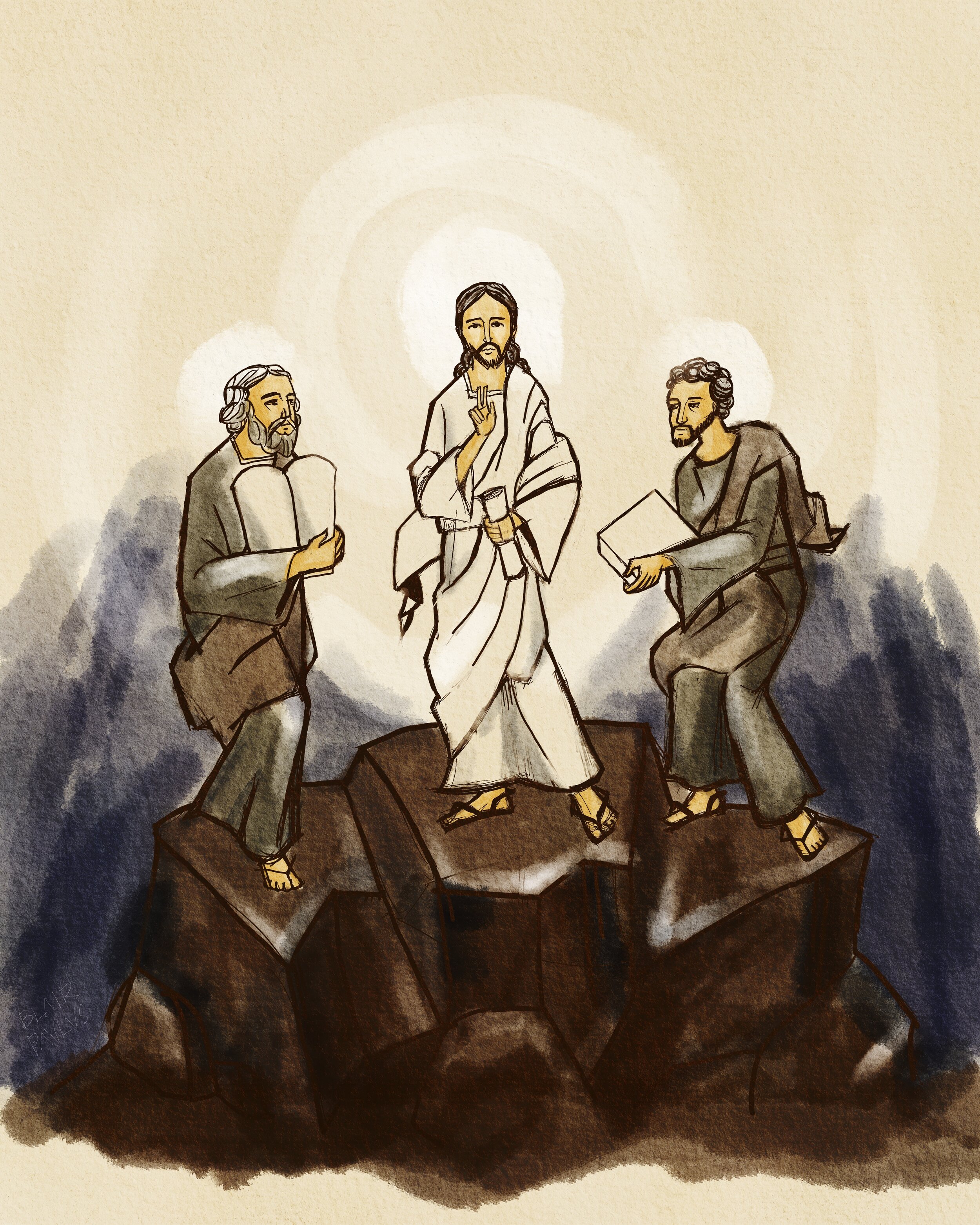Transfiguration by Brother Blair Nuyda, A.A.
Today’s Lenten reflection is written by Father Chi Ai Nguyen, A.A.,
Theology Professor at Assumption University
In the depths of our being, there is the power of life that is irrepressible. It helps us to overcome our difficulties. Being powerful doesn’t mean being without weakness. Being powerful means being capable of overcoming our weaknesses. The more we are able to face our weaknesses, the more powerful we become.
When we contemplate Jesus on the cross, we understand that the power of God is at work within weakness. God’s love for us appears the most powerful when Jesus, his Son, endures human suffering and accepts death. God’s love demonstrates its greatest strength when it embraces human weakness to the end. In today’s Gospel, Jesus takes Peter, James and John onto a high mountain to show them the horizon of their hope. This moment of light doesn’t eradicate the reality of the cross. The transfiguration precedes the cross without destroying it.
The two witnesses to the transfiguration are Elijah and Moses. While describing their dialogue with Jesus, Mark places Elijah before Moses. He does not follow chronological order since Moses had lived four centuries before Elijah. This reversal gives a new meaning to the presence of Elijah and Moses. According to the biblical tradition, Elijah went up to heaven in a whirlwind (2 Kings 2:11). For his part, Moses died and was buried in the land of Moab (Deuteronomy 34:6). So Mark skillfully highlights the relationship between life and death: life that reminds us of Elijah’s destiny is more powerful than death — from which Moses could not escape. In a word, life prevails over death.
